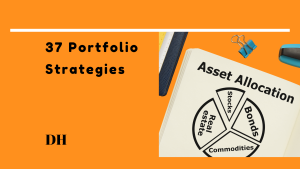
In today’s fast-paced financial world, where fortunes are made and lost in an instant, who do the world’s wealthiest turn to for guidance? Trusted financial advisors are no longer just number crunchers; they are the architects behind life-changing investments, the unseen forces shaping global markets. Imagine having access to the minds that not only steer individuals but also influence the course of entire economies. Below, we unveil the top 10 most influential financial advisors—visionaries whose decisions ripple across industries and whose impact on the financial world is nothing short of extraordinary. Ready to meet the masterminds behind the curtain? Let’s dive in.
• Financial experts shape investor behavior and transform how vast numbers of people approach investing.
• Eight of the top 10 financial gurus have earned their reputation by consistently delivering outstanding annual returns over several decades.
• Their strategies differ widely—some are famous for long-term buy-and-hold approaches, while others thrive on short-term speculative trades.
• The remaining two gurus pioneered and popularized index investing, which is now one of the most widely used and cost-effective investment strategies today.
- Warren Buffett – The Oracle of Omaha
Warren Buffett, Chairman and CEO of Berkshire Hathaway, stands as one of the most renowned financial advisors in history. His value investing strategy, which focuses on purchasing undervalued stocks and holding them for the long term, has yielded impressive returns over decades. Buffett is celebrated for his conservative yet consistently successful investment philosophy, which he shares through annual letters to shareholders.
Key Contributions:
- Value investing strategy: Buying stocks with intrinsic value and holding them for years.
- Philanthropy: Donating billions through the Gates Foundation.
- Market Influence: His movements in the stock market often influence global trends.
2. Peter Lynch – Master of Growth Investing
Peter Lynch, the former manager of the Magellan Fund at Fidelity Investments, has cemented his reputation as a growth investment guru. His belief in “buying what you know” made investing more accessible to individual investors. Lynch’s tenure at Magellan Fund (1977-1990) saw assets grow from $18 million to $14 billion.
Key Contributions:
- Growth investing philosophy: Advocating for investing in companies you understand.
- Book Contributions: Authored investment classics like One Up on Wall Street.
- Investor Education: Simplified investing for the common person.
3. John Bogle – Founder of Vanguard and Pioneer of Index Funds
John Bogle, founder of Vanguard Group, revolutionized the investment world by introducing low-cost index funds. He championed the idea that most investors would benefit from investing in a broad, low-cost index fund rather than trying to outperform the market.
Key Contributions:
- Index fund revolution: The first index mutual fund was founded in 1975.
- Cost-efficiency: Advocated for low fees to improve investor returns.
- Long-term investing: Encouraged buy-and-hold strategies for average investors.
4. Benjamin Graham – Father of Value Investing
Benjamin Graham, often considered the “father of value investing,” mentored Warren Buffett and inspired countless investors with his principles of buying undervalued stocks. His book, The Intelligent Investor, remains one of the most widely read investment books.
Key Contributions:
- Value investing fundamentals: Stressed the importance of intrinsic value.
- Defensive vs. enterprising investors: Offered strategies for both risk-averse and aggressive investors.
- Legacy: Taught and mentored legendary investors like Warren Buffett.
5. Dave Ramsey – Personal Finance Advisor Extraordinaire
Dave Ramsey is best known for his practical, no-nonsense approach to personal finance, which emphasizes living debt-free and building wealth through disciplined savings and investments. His Financial Peace University has guided millions toward financial independence.
Key Contributions:
- Debt-free living: Advocates for living within your means and eliminating debt.
- Baby Steps Program: A clear, step-by-step approach to financial security.
- Influence through media: Reaches millions via his radio show, podcasts, and books.
6. Suze Orman – Finance Expert and Motivational Speaker
Suze Orman is a household name in personal finance, empowering millions with her books, television shows, and seminars. She offers practical advice on saving, budgeting, and investing, particularly aimed at helping women achieve financial independence.
Key Contributions:
- Women and finance: Focuses on empowering women to manage their finances.
- Emergency funds: Stresses the importance of having a financial safety net.
- Media presence: Reaches wide audiences through her shows and books.
7. George Soros – The Man Who Broke the Bank of England
George Soros, a legendary hedge fund manager and philanthropist, is best known for his highly successful bets against the British pound, which earned him $1 billion in a single day. Soros is also a prominent figure in global politics and philanthropy through his Open Society Foundations.
Key Contributions:
- Global macro strategy: Focused on large-scale economic trends.
- Philanthropy: Donated billions to promote democracy and human rights.
- Market influence: One of the most successful hedge fund managers in history.
8. Ray Dalio – Founder of Bridgewater Associates
Ray Dalio, the founder of Bridgewater Associates, the world’s largest hedge fund, is a pioneer of risk parity, a strategy that balances risk across different asset classes. Dalio’s principles-based approach to investing and management has made him one of the most influential figures in finance.
Key Contributions:
- Risk parity: Balanced risk investment approach.
- Investment philosophy: Believes in diversifying investments across assets.
- Thought Leadership: Author of Principles: Life and Work.
9. Robert Kiyosaki – Author of Rich Dad, Poor Dad
Robert Kiyosaki revolutionized personal finance education with his bestselling book Rich Dad, Poor Dad, which stresses the importance of financial literacy and building wealth through investments and entrepreneurship. Kiyosaki advocates for creating passive income through real estate and business ownership.
Key Contributions:
- Financial literacy: Encouraged education on money and investing.
- Real estate investment: Promotes wealth building through real estate.
- Entrepreneurship: Advocates for financial independence via business ownership.
10. Mohamed El-Erian – Financial Thought Leader and Economist
Mohamed El-Erian, the former CEO of PIMCO, is a thought leader in global finance and economics. Known for his “New Normal” theory, El-Erian predicted that the post-2008 financial world would experience slower growth and increased government intervention in markets.
Key Contributions:
- New Normal: Predicted slower economic growth post-2008 crisis.
- Global economics expertise: A trusted voice on macroeconomic trends.
- Leadership: Guided PIMCO to become a leader in fixed income investments.
Conclusion
These financial advisors have left an indelible mark on the global financial landscape. From guiding personal finance decisions to shaping institutional investment strategies, their influence continues to be felt across markets, institutions, and individual portfolios. Their unique perspectives on wealth management, risk mitigation, and economic trends have not only shaped their clients’ financial futures but also contributed to the broader global economy.
FAQs
What does a financial advisor do?
A financial advisor helps clients manage their finances, investments, retirement, and overall financial goals.
How do I choose the right financial advisor?
Look for credible certifications, a strong track record, and a fee structure that aligns with your needs.
How do financial advisors get paid?
They can be paid through commissions, fees, or a combination of both, depending on their service model.
What are the benefits of hiring a financial advisor?
They provide expert advice and personalized strategies and help reduce the stress of financial decision-making.
What is a fiduciary duty, and why does it matter?
Fiduciary duty means the advisor must act in your best interest, ensuring ethical and unbiased advice.






